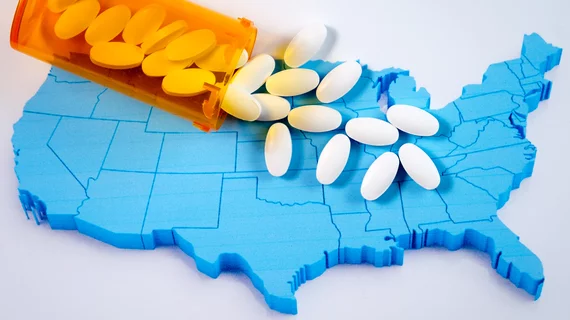CVS expands drug delivery across nation
CVS Pharmacy is expanding its delivery service, CarePass, nationwide at participating pharmacy locations, the company announced.
The program, which offers prescription drug delivery for free on select drugs and other benefits for a monthly membership fee, was originally a pilot project in select markets, where CVS found broad appeal from customers. Of its CarePass audience, 20% are millennials, CVS stated.
"Initial customer response has exceeded our expectations with members utilizing the program's full benefits and becoming more engaged across all of our digital offerings,” Kevin Hourican, executive vice president, CVS Health and President, CVS Pharmacy, said in a statement.
Members of CarePass pay $5 per month, or $48 for an annual membership to receive delivery of prescription medications, access to a pharmacist helpline anytime, other special discounts on CVS Health brand items, and a monthly $10 promotional reward for in-store and online items. CarePass members also receive a free sports physical as part of their membership at their local MinuteClinic.
CVS also said it’s seeing a boost in customer purchases of about 15% to 20% from members who join the CarePass program.
The expansion of the program comes at a time when competitors from outside the industry are trying to stake a claim in the space. Amazon purchased online pharmacy PillPack last year as part of its venture into healthcare.

